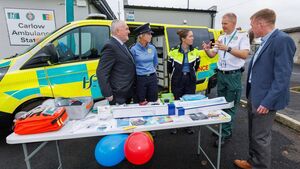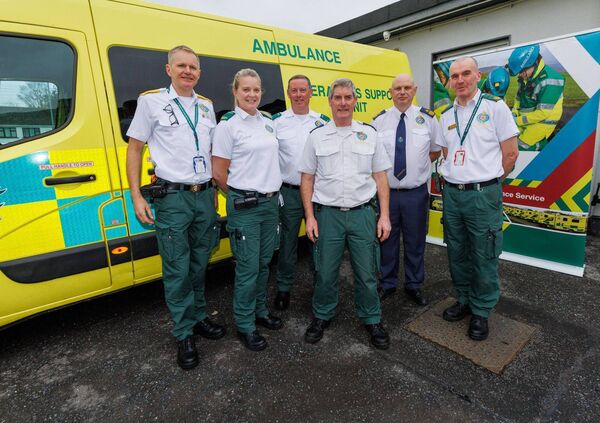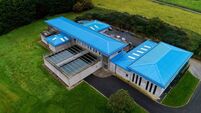Innovative community paramedic service will see patients treated in their own homes

At the launch of the community paramedic service in Carlow were John McGuinness TD, Garda Kate Glennon, Garda Essmay Murphy, community paramedic Peter Reynolds and Ian Brennan, Regional National Ambulance Service Photos: michaelorourkephotography.ie
AN innovative new service in Co Carlow aims to ‘bring the right care to the right patient in the right place and at the right time’. The service aims to provide community-centred healthcare services that will bridge primary care and emergency care by assessing each patient and treating them in their home, where possible.
The new community paramedic (CP) service was launched last week at the ambulance base in Carlow town.

Chronic and minor illnesses, minor injuries and procedures such as urinary catheterisation and wound suturing will all be carried out by the community paramedics, so the patient won’t have to attend hospital. They’ll also do some health promotion and disease/injury prevention.
The system works by each 999 caller being triaged by the National Ambulance Service and, when appropriate, a CP will be dispatched to attend. Integration and collaboration with other local services will be essential in being able to signpost patients to different treatment options, where necessary. More serious emergencies will also be attended to by the CP, as the vehicle is equipped to deal with all eventualities that may present themselves.
The CP course is taught at master’s level as a collaboration between the National Ambulance Service College and UCC, which devised the training and clinical placements.
“In effect, it brings the right care to the right patient in the right place and at the right time. County Carlow will now benefit from the addition of a community paramedic (CP) designated to the local ambulance station,” said Peter Reynolds, the community paramedic who set up the service for Carlow.
“A special thanks must go to Dr Jonathan Jacob GP, who very generously agreed to be a part of this initiative and welcomed me to his surgery to hone my assessment and diagnostic skills relevant to the role, which I am very grateful for,” said Peter. “Our statistics demonstrate that approximately 70% of patients attended to by a CP can avoid having to attend an acute hospital. Not only is this a positive for patients, but for every non-conveyance there is an ambulance available for someone who may need it on a more urgent basis. The local managers and my colleagues are very supportive of the role and we are all keen to see the benefits for the people of Carlow, who we serve daily.”




